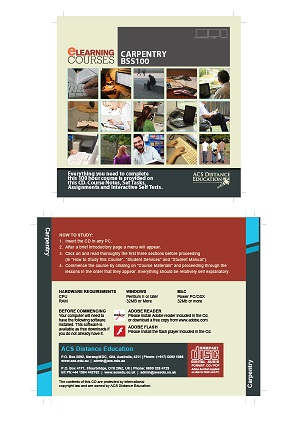 Learn to Write for Education
Learn to Write for Education
- Course notes and student handouts
- Curriculum documents (course prescriptions)
- Text books
It takes a specific skill for writing a course or the materials that support teaching. Teaching materials serve a different primary purpose to other written materials. They should be primarily focused on facilitating learning. This is different to writing that is primarily designed to inform, entertain or communicate.
Course Content
There are nine lessons in this 100 hour course
1. Bases for Education
- Approaches to Education
- Teacher Centred Learning
- Student Centred Learning: PBL, Experiential, Montessori, Self paced learning
- Specialist or Generalist Education
- Competency Based Training; CBT
- Homework
- Delivery Modes
- Issues For Learning; Lifelong learning, Foundation skill development, Reinforcement
- Problem Based Learning; characteristics of PBL,Why PBL, Benefits of PBL, PBL Problems, PBL project stages
- Education Contextualisation
- Trends, Ethics, Equity
- Establishing Course Aims
2. Course Writing Methodologies
- Developing Courses
- Course Outlines
- Curriculum Documentation
- Study Notes
- Continuous or Periodic Course Review and Development
- Identifying Needs; student perspective, educators perspective, family perspective, community and industry perspective
- Identifying Resources; student and teacher
- Writing Aims, Competencies and Assessment Criteria
- Writing Course Notes
- Writing Practicals
- Writing for Clarity and Understanding; principles of good writing, structuring the course
- Coding Courses
- Flexible Delivery
- Applying Strategies for Flexible Delivery
- Course Components; Assignments, Exercises, Brainstorming, Buzz Groups, Demonstration, Discussion, Case Study, Guest Speakers, Laboratory Work, Lecture, Mutual Lectures, Practical Workshop, Project, Tutorials
3. Level of Study
- Determining Appropriate Level of Study; Quantitative and Qualitative Factors
- Descriptors
- Duration
- Assessment
- Levels of Training; eg. varying certificate levels between UK and Australia
- Lessons and lesson plans
- Determining level required
- Identifying student needs
- Allowing for different modes of study
- Structuring a lesson
- Timing a lesson
- Evaluating and improving a lesson
- Levels and kinds of Language
- Language of learning, and Professional language
- Determining level of Training
- Skills and Training Objectives; Competence
4. Curriculum Documentation
- Scope and Nature
- Examples
- Structure and Layout
5. Course Materials
- Introduction
- Teaching Resources
- Learning Resources
- PBL Project; Develop a new course with minimum use of limited resources: financial and other.
6. Course Material Creation
- Developing knowledge
- Applying Knowledge
- Reflection and Review
- Developing Skills
- Innovation and Flexibility
- Types of Support Materials; documentation, visual elements and illustration, technical aids
- Factors to Consider when Writing Support Materials
- Writing for Distance Education; Problems and Solutions
- Writing a Question
- Dealing with Practical Aspects of Education
- Clarity and Consciousness
- Improving Clarity
- Understanding Causes of Confusion
- Ways to Write Concisely
- Differentiating between Guidelines, Instructions and Procedures
- Correspondence Course Structure
- Writing PBL Documentation
- Handouts
- Visual Materials; Illustration, Charts
- Audio Materials, Recorded Presentations
- Digital Technology; Educational Applications for Digital Technologies
- Multimedia
- The Internet
7. Reviewing and Updating Courses
- Change and Inertia in Education
- Policies and Procedures to Support Change
- How to Review a Course
- Procedure for Changing an Established Course
- Procedure for Maintaining Currency
8. Recognition and Accreditation
- Who can Provide Education
- Universal Recognition; Is it Possible
- Scope of Endorsement Systems
- Recognition and Qualifications
- What is Accreditation
- The Value of Accreditation
- Accreditation Myths
- Recognition and Accreditation Systems
- Trends
- Who accredits or recognises what
- Secondary, Vocational, University Education
- Industry Training Boards
- Accreditation Authorities
- Other Forms of Recognition
9. Application and Implementation
- Delivering Classroom Based Courses
- Session Organisation
- Delivering Practical Courses Outside a Classroom
- Delivering Distance Education Courses
- Customising Distance Education
- Assessment and Evaluation
- Purpose of Assessment
- Forulative, Cumulative and Summative Assessment
- Assessment Policies and Procedures
- Marking Guidelines for Assignments

Education is changing.
There is a strong sense throughout the whole world that education is critical to success in any industry; but also a serious lack of understanding on the part of parents, students, employers and politicians. They frequently do not properly understand how people learn and what the potential benefits and limitations of learning can be. Teachers do tend to understand learning, but over recent decades, there has been a move of power away from teachers controlling what is taught, to politicians and everyone else in society competing for influence over what and how education is delivered. In short, education has become increasingly politicised and often as a result, people who work in education are stressed and frustrated.
In many developed countries, trends have emerged to develop education as a “self funded” industry, an “export earning industry” or “solution to unemployment”. In some respects, moves like this can be seen as simply “hijacking” a service that should be tending to higher and more important purposes.
It is very likely that the nature and scope of education will evolve and change dramatically over coming decades, as the recent problems are recognised and responded to. The rate and nature of changes in education at all levels, from pre-school to university, are unpredictable. The one certainty is that education as an industry and employer of educators will survive.
If you seek a career in education, it is wise to develop broad skills and an attitude that is prepared for change and a nature that is capable to adapt.